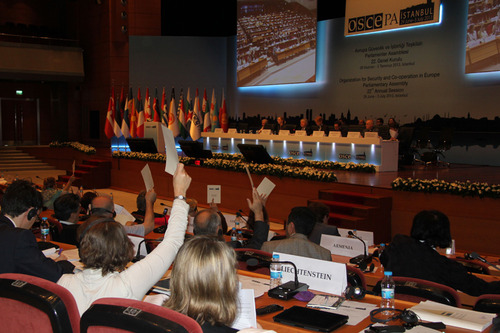News from the OpeningParliament.org community:
In India, a recent news article covered PRS Legislative Research’s organizational model. PRS Legislative Research recently published a report on the activities of the Lok Sabha, joined the debate on pending corruption bills, and explored parliamentary and constitutional issues of new statutory entitlement legislation. Elsewhere in India, the government launched an Accountability Initiative to provide resources for accountable governance and procurement. TechPresident covered CGNet Swara, a project aiming to empower citizens to address their problems using voice messaging. The Times of India detailed the lack of transparency in political donations.
In Spain, OpenKratio became the 130th organization to endorse the Declaration on Parliamentary Openness. OpenKratio supports a number of open government initiatives, including the Hummingbird Project, which aims to bridge the programmer/web journalist communities with the Spanish Congress to facilitate data access. Recently, OpenKratio announced a collaboration with the Andalucia Open Left political party and reported on a study on big data and political participation. A new app where users can express their opinion on current legislation is now available. Elsewhere, Global Integrity highlighted a “low-tech” approach to improving transparency in rural areas of Spain by Graba tu Pleno.
In Mexico, legislators in the Chamber of Deputies sought to change the content of transparency reforms in a way that civil society organizations said would be a major step back for government openness. Amid this vast criticism, legislators rolled back these changes at the last minute before passing the reforms through the Chamber late in the evening, September 22. Further commentary is available from Fundar here.
